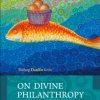Документарно-играни филм ”Србија у Великом рату” је хронологија страдања и победа српске војске, државе и народа у Првом светском рату.
Аутор документарно-играног филма ”Србија у Великом рату” је Слађана Зарић. Редитељ филма је Ивана Стивенс.
Label and copyright : РТС




